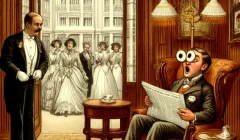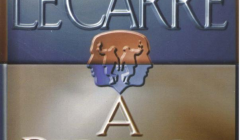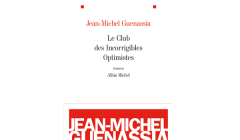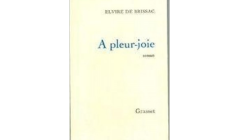Inspired by this news story from London….Image created by OpenAI’s DALL·E.
“Steady on, Jeeves!” I exclaimed.
“Sir?” He was icily polite.
“Are you feeling quite yourself, Jeeves?” I asked, with what I hoped he would interpret as a tenderly solicitous air.
“Sir?” A little slower this time, with the tiniest hint of menace.
“I’m sorry, Jeeves, it must be me. I thought you were hallucinating. I should have known better.”
“Sir?” He sounded bewildered.
“Yes, Jeeves”, I said, relieved at last to have found an explanation. “I need one of your pick-me-ups. It was quite a night, last night. I’m the one who’s hallucinating, not you. Forget I mentioned it.”
“May I ask what your hallucination consisted in, sir?”
“Yes, of course. Quite absurd, really. I thought you said….”
“Sir?”
“You’ll think me ridiculous, I know. Rather embarrassing to admit, really. But I thought you said…”
“Yes, sir?”
“I thought you said….no, ha ha, I can barely utter it…I thought you said the Drones Club…”
“Sir?”
“I thought you said the Drones Club had voted to admit lady members.”
There was an awkward silence. I wished the ground would open and swallow me up.
I began to stutter. “Er, er…absurd of course..”
“No sir”, said Jeeves – even more icily, if that were possible. Who’s the chap, Beer or Lear or someone, who goes out on the icy heath? I know how the fellow felt.
“I told you I was hallucinating”.
“It was the Garrick Club, sir.”
I reached out to steady myself against the wall.
“There it goes again, Jeeves. I’m still hallucinating. Get me that pick-me-up, quickly, please.”
“As you wish, sir.”
“It’s getting worse, Jeeves. This time I thought you said it was the Garrick.”
“It was, sir.”
It was with a surprising degree of calm that, some minutes later, I noted a gradual slowing-down of the stars that had begun to spin around me upon hearing Jeeves’s words. The pick-me-up he had pressed to my lips had something to do with it, no doubt. I had sunk back onto the chaise-longue. Eventually the blur in the drawing-room around me began to clear.
“I say, Jeeves!”
“Yes, sir?”
“What is it those classical chaps are always saying? O tempora…?”
“O mores, sir.”
“That’s it, Jeeves! If even the Garrick….I mean, if even the Garrick, well we’re sunk, aren’t we?”
“Indeed, sir”.
“I mean dash it, Jeeves. Where’s a fellow to go to escape the….”
“Yes, sir?”
“The, the, what’s the word I want? Something beginning with E”.
“Entanglements, sir?”
“That’s the word I want. The entanglements of the fair sex. I mean to say, if the fair sex are to be found skulking even in the Garrick, there’ll be nowhere to hide!”
“Precisely, sir”.
“Entanglements everywhere!”
“Indeed, sir.”
There was another silence. I tried to look philosophical, but I fear that my eyes were swivelling. Like that patient old Pop Glossop described to me once, a most enlightening conversation until it dawned on me that he was comparing the patient’s state of mind favourably with that of yours truly.
Jeeves coughed, discreetly. I recognized the signs.
“What is it, Jeeves? I can tell you’re hatching something. You look like a gull sitting on an egg.”
From the tiniest flicker of an eyebrow, I could tell that Jeeves was deeply wounded. But he is made of sterner stuff, and the moment passed.
“I fear, sir, the days are gone when one could escape entanglements at the Garrick, even without the presence of lady members.”
“I say, Jeeves, you don’t mean….?”
“Precisely, sir”.
“What’s that thing about bread, you know, the loaf that durst not something-or-other…?”
“The love that durst not speak its name, sir”.
“That’s it, Jeeves. I say, we’re really torpedoed below the waterline now, aren’t we? Though, come to think of it, that’s not the metaphor…”
“I would not venture to describe the situation in quite such apocalyptic terms, sir.”
“Oh you bally well wouldn’t, would you? What makes you so jolly confident, may I ask?”
Jeeves coughed again. I have learned to pay special attention when he does that.
“If I may make so bold, sir…”
“Yes, Jeeves?”
“I have in recent weeks become engaged, sir, in what, were I of the apocalyptic turn of mind that your lordship so recently expressed, I might have described as just such an ‘entanglement’, but which I would now rather express as a most happy state of circumstances, sir.”
I tried to parse that one. Jeeves’s pick-me-up wasn’t helping.
“I say, Jeeves, you don’t mean…?”
“I do, sir”.
I paused. And then, because pausing seemed to be doing me some good, I paused again.
I examined the situation from every angle.
“Well, Jeeves, I must say, I hope you’ll both be very happy….”
“Thank you, sir”.
“And, for the avoidance of all confusion, am I to understand that the fairer sex are in no way involved in this, er, entanglement?”
“I think it unfortunate, sir, that in answering in the affirmative I might be thought to doubt the fairness of the gentleman in question”.
“I see, Jeeves.”
“Thank you, sir.”
It was a wiser, but not after all a sadder Bertram who sidled into the bar at the Drones that evening. I had done a lot of what I believe is called thinking. Not much of it in the Drones, I grant you. But I sensed that changes were in the air.
“I say, Pongo!” I exclaimed, spying him deep in thought over a brandy-and-soda in a corner Chesterfield. “I’ve got a rather strange question for you!”
Pongo turned a jaundiced air on Bertram, as if to wonder morosely when my questions had ever been less than strange.
I coughed slightly, before proceeding. I’ve noticed Jeeves does that sometimes, and it gives what he says a certain something. What’s that word beginning with G?
I couldn’t find the G-word, but I found another in its place.
“I say Pongo, you don’t know anyone who might be willing to put me up for the Garrick, do you?”
From Pongo’s startled look I understood that I was going to have to explain it all to him from the beginning.





